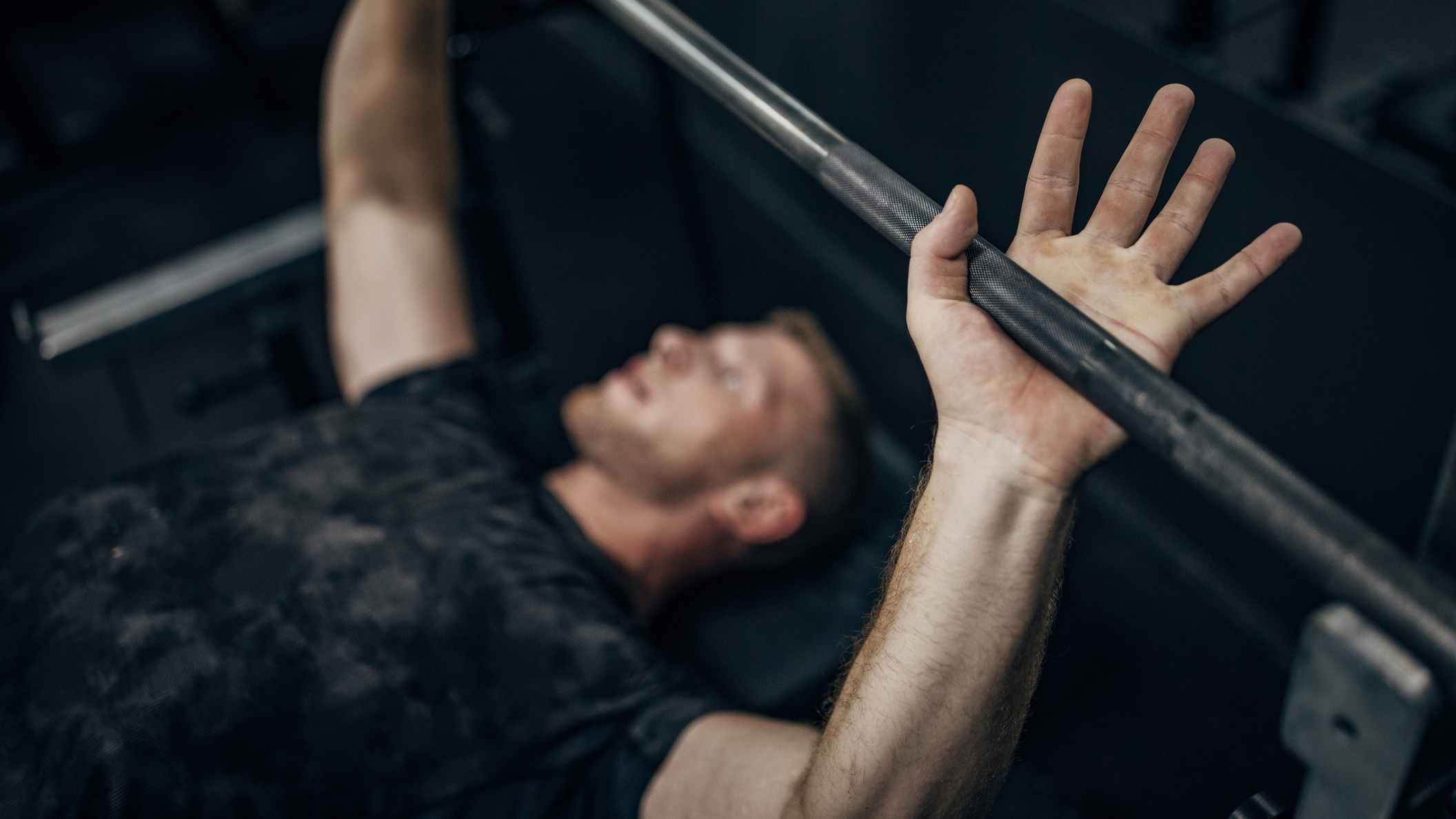A PT’s Favorite Six-Move Workout For Building Chest, Back And Arm Muscle
Pack on mass in your upper body while building serious pushing and pulling power

Granted, skipping leg day is tempting, but it’s hard to say no to a solid upper-body pump. And we’ve got one of the best routines to prove it.
This upper-body workout from Tyler Read, NASM-certified PT and founder of PT Pioneer, promises to beef up your back and pack mass onto your chest. All it takes is a balance of three push and three pull exercises.
“This workout is my favorite all-round upper-body muscle-building routine for people who have access to a standard commercial gym,” says Read.
“This is a great workout to do one or two times per week for muscle growth. It’s relatively safe and beginner-friendly, while allowing you to increase the weight with and scale the difficulty to see real gains.”
Workout Overview
- Bench press 4 x 8-10
- Dumbbell bent-over row 4 x 8-10
- Dumbbell shoulder press 4 x 8-10
- Lat pull-down 4 x 8-10
- Triceps press-down 3 x 10-12
- Cable curl 3 x 10-12
Form Guides
1 Bench press
Sets 4 Reps 8-10 Rest 90sec
Lie back on a flat bench with a barbell racked above you in line with your eyes. Take hold of the barbell with an overhand grip with your hands slightly wider than shoulder-width apart. Take a breath in, brace your abs and lower the barbell to your chest under control, keeping your elbows tucked in. Pause, then press the barbell back up as you breathe out, squeezing your chest at the top. Throughout the movement, keep your feet flat on the floor and your back slightly arched.
2 Dumbbell bent-over row
Sets 4 Reps 8-10 Rest 90sec
Get the Coach Newsletter
Sign up for workout ideas, training advice, reviews of the latest gear and more.
Stand with your feet shoulder-width apart, holding dumbbells with your palms facing you. With knees slightly bent, hinge forward from your hips, pushing your hips backward and keeping your back straight, and letting your arms hang down. Keeping your shoulder blades engaged, pull the dumbbells towards your hips until your elbows are bent at 90°. Pause and squeeze your shoulder blades together, then slowly lower the dumbbells under control.
3 Dumbbell shoulder press
Sets 4 Reps 8-10 Rest 90sec
Sit on an upright bench, holding dumbbells at shoulder height, elbows out to the sides. Press the dumbbells overhead until your arms are fully extended. Slowly lower the dumbbells back to shoulder height. Keep your back and core engaged throughout, and avoid using excessive momentum or arching your back.
4 Lat pull-down
Sets 4 Reps 8-10 Rest 90sec
Sit in a lat pull-down machine with your legs securely under the thigh pad. Using a wide-bar attachment, grip the bar wider than shoulder-width apart with your palms facing forward. Maintaining a slight arch in your lower back, pull the bar to your upper chest. Retract your shoulder blades and bring your elbows towards your body. Pause and squeeze your lats before slowly releasing the bar back to the starting position.
5 Triceps press-down
Sets 3 Reps 10-12 Rest 90sec
Attach a straight bar to a high pulley. Hold the bar in front of your chest using an overhand grip, keeping your elbows close to your body. Extend your arms to pull the bar down to your thighs. Pause and squeeze your triceps. Slowly return to the start. Keep your back straight and avoid leaning excessively forward.
6 Cable curl
Sets 3 Reps 10-12 Rest 90sec
Attach a straight bar to a low pulley. Hold the bar in front of your thighs using an underhand grip, keeping your elbows close to your body. Bend your elbows to lift the bar to your shoulders. Pause and squeeze your biceps. Slowly lower the bar to the Start. Keep your core braced throughout and avoid using your back for momentum.
Workout Tips
Time Your Rests
Rest is as important a variable as sets and reps. Read recommends using a stopwatch to help you stick to the rest periods.
Get The Weight Right
“Choose a weight that leaves one or two reps in the tank at the end of your first set,” says Read. Then, by the end of your last set, you should be at or near muscle failure.
“Muscle growth, or hypertrophy, requires enough volume for adequate stimulus. On the flip side, the weight should not be so light that you could perform more than 12 reps on all sets.”
Control The Eccentric
There are three phases of any strength training exercise: the concentric, eccentric and isometric.
The concentric is the one most people will focus on, where the working muscle is contracting. For example, raising the dumbbells towards your shoulders during a biceps curl.
“Work the eccentric portion of each movement as well,” says Read. “As you lower the weight to the bottom position in reach repetition, control it. This works both directions of the movement for a better overall stimulus.”
Make Smart Swaps
“If you do not have access to all the equipment in this workout, you can swap the exercises for similar movements utilizing different equipment,” says Read.
In many cases, there are dumbbell and bodyweight exercises you can sub in.
“For example, pull-ups instead of lat pull-downs, dumbbell skullcrushers instead of triceps press-downs, and dumbbell curls instead of cable curls.”

Harry covers news, reviews and features for Coach, Fit&Well and Live Science. With over a decade of training experience, he has tried everything from powerlifting to gymnastics, cardio to CrossFit, all in a bid to find fun ways of building a healthy, functional body.
